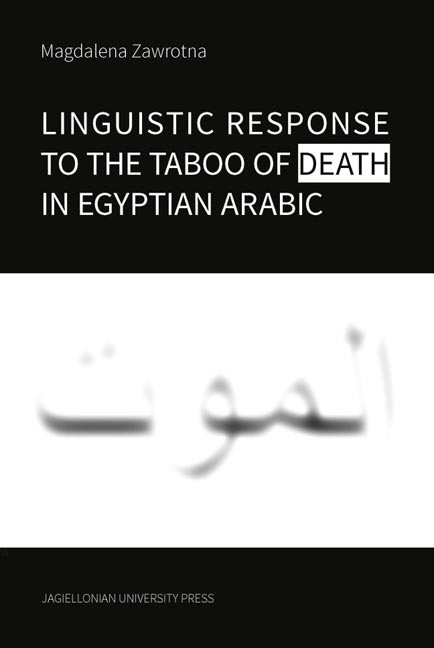Book contents
- Frontmatter
- Contents
- 1 Transcription system
- 2 Introduction
- 3 What is formulaicity?
- 4 Material
- 5 State of research
- 6 Structural notes
- 7 Qualitative analysis of death announcements, comments containing condolences and their responses
- 8 Recapitulation of the analysed material
- 9 Death and the agency of God
- 10 The taboo of death
- 11 Summary
- 12 Questions for further exploration
- Bibliography
- Miscellaneous Endmatter
7 - Qualitative analysis of death announcements, comments containing condolences and their responses
Published online by Cambridge University Press: 14 October 2023
- Frontmatter
- Contents
- 1 Transcription system
- 2 Introduction
- 3 What is formulaicity?
- 4 Material
- 5 State of research
- 6 Structural notes
- 7 Qualitative analysis of death announcements, comments containing condolences and their responses
- 8 Recapitulation of the analysed material
- 9 Death and the agency of God
- 10 The taboo of death
- 11 Summary
- 12 Questions for further exploration
- Bibliography
- Miscellaneous Endmatter
Summary
The following qualitative analysis aims to discuss selected aspects of the formulaicity in utterances related to the subject of death in three different communicative types: death announcements, comments, and dialogues. In this part, the material from two periods will be analysed. The majority will consist of data obtained for the purposes of this work including 20 death announcements, 857 comments and 220 responses to comments from 2020–2021. On the other hand, a corpus of Facebook conversations of 60 people from 2007–2014 was also used, previously analysed in 2016 in my doctoral thesis Linguistic Etiquette and Taboo in the Language of Young Egyptians. A Text-Based Study of Online Communication. What is of key importance for the current study is more or less conventional formulae, as presented in the previous chapter. All of the analysed comments appeared in reaction to a death announcement. In this chapter, the bulk of the formulae will be extended to include posts and dialogues.
Death announcements
This analysis encompasses death announcements appearing on Facebook in the form of posts. Most of them concerned the death of a speaker’s loved one that happened shortly before the publication of the post. Some of them, however, related to situations that took place in the past, e.g., appeared on the anniversary of the death. Therefore, the tabooisation of the theme may have faded for the speaker, to some extent, over the passage of time. These posts refer to a tragedy that has already been processed. The pain that the authors indicate is more conscious and is talked about more openly. There are fewer prayers and more poetic attempts, although of course this observation is anecdotal rather than hard fact, taking into account the fact that the material analysed here is limited in size.
The material analysed here consists of 20 death announcements of differing lengths. A single sentence or its functional equivalent is assumed as a unit. Announcements consist of 16 sentences on average, although the differences are significant. Two of the announcements consists of a single sentence, while the longest one has 70 sentences. The material was randomly selected form enormous amount of such data available on Facebook. The most surprising feature turned out to be its diversity.
- Type
- Chapter
- Information
- Linguistic Response to the Taboo of Death in Egyptian Arabic , pp. 85 - 116Publisher: Jagiellonian University PressPrint publication year: 2021



